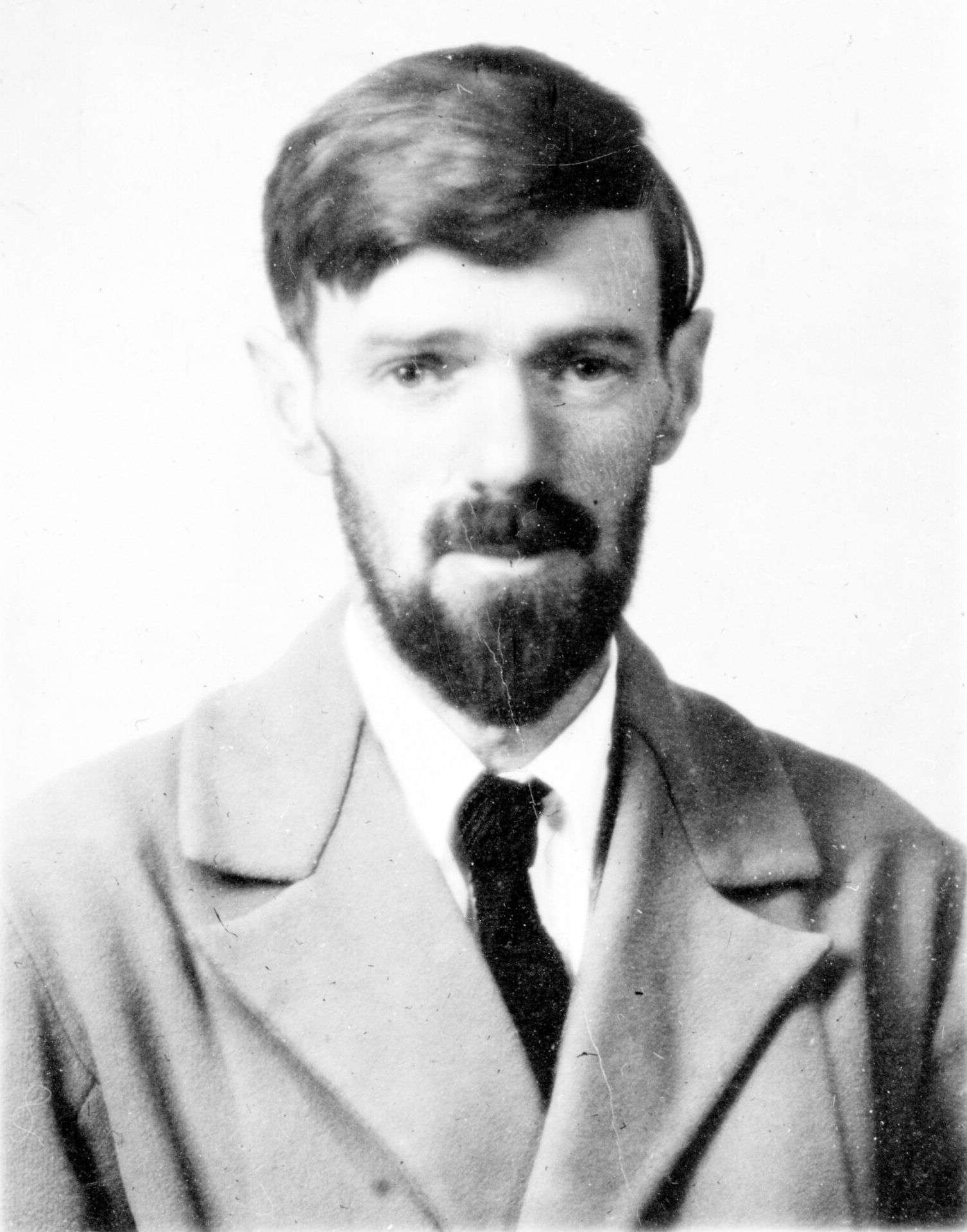
Self-Portrait with Cigarette: Ernst Ludwig Kirchner, c. 1913
Why does the thin grey strand
Floating up from the forgotten
Cigarette between my fingers,
Why does it trouble me?
Ah, you will understand;
When I carried my mother downstairs,
A few times only, at the beginning
Of her soft-foot malady,
I should find, for a reprimand
To my gaiety, a few long grey hairs
On the breast of my coat; and one by one
I let them float up the dark chimney.
D. H. Lawrence: passport photo, n.d (Beinecke Rare Book and Manuscript Library, Yale University)
D. H. Lawrence birthplace, Eastwood, Nottinghamshire: photo by John G. Hill, 14 September 2007
D. H. Lawrence (11 September 1885-2 March 1930): Sorrow, from Amores, 1916
"He sat in the kitchen, smoking. Then he tried to brush some grey ash off his coat. He looked again. It was one of his mother's grey hairs. It was so long! He held it up, and it drifted into the chimney. He let go. The long grey hair floated and was gone in the blackness of the chimney."
-- Lawrence, from Sons and Lovers, begun 1910-1911, published 1913


Lawrence's poetry could easily vie with his own prose for greatness...
ReplyDeleteIn this instance we are privileged to see him working-over, in the two very different media, an image that represents his deepest and most urgent emotional concern; it's evident right away that in putting off the feeling from the vulnerable, exposed first-person poetic narrator to the relatively distanced third-person fictional alter-ego Paul Morel, there is at once a relief from the oppressiveness of the emotion, and a "stabilizing" of the material, making it bearable by removing some of the personal affect.
ReplyDeleteI think he is no less an artist in either medium.
That is sad, finding something later, but it is dead, too, and not real clinging onto a living body or else always part of the ones left behind? Or is it dead, anyway? The reminders don't go away but gently nudge the breathers to remember.
ReplyDeleteI love this. I can't imagine anyone not finding it deeply affecting and also fascinating writing. Oh, sorry, I just remembered yesterday and I take back the word "anyone." Curtis
ReplyDeleteAfter a while it gets to feel like one long nudge. (Trying to tell you something?)
ReplyDelete"That writer was D H Lawrence. And the critic has, quite rightly, been forgotten."
ReplyDelete- Charles Bukowski.
Ray, writers are to critics what wood is to termites. Bukowski's taste was unerring. People who conceive him as a sort of savage one-off miss the fact that he learned his art from the best sources. But of course those sources -- Lawrence indeed for one, Céline for another -- were not the sort of thing that could easily be antisepticized and institutionalized to fit conveniently into the academic canons (last year's, this year's, next year's). The anomalous masters are those who have learned from the great anomalies.
ReplyDeleteIndeed, Tom.
ReplyDeleteI do think Bukowski missed the beat (if you'll pardon the pun) on a few occasions. But don't we all?
The current bugbear of the critics at the moment is Michel Houellebecq. Those pompous ivory tower critics really slam him.
Whilst I consider him to be probably one of the most important writers of our era.
I only suggest both he and Nietzsche should have been shot for having names you can never remember how to spell.
As a reprieve by approximation, it might be safest to pronounce the name like that of the Man Utd forward.
ReplyDeleteLawrence, indeed, equal in both mediums - prose and poetry.
ReplyDeleteSimply stunning work.